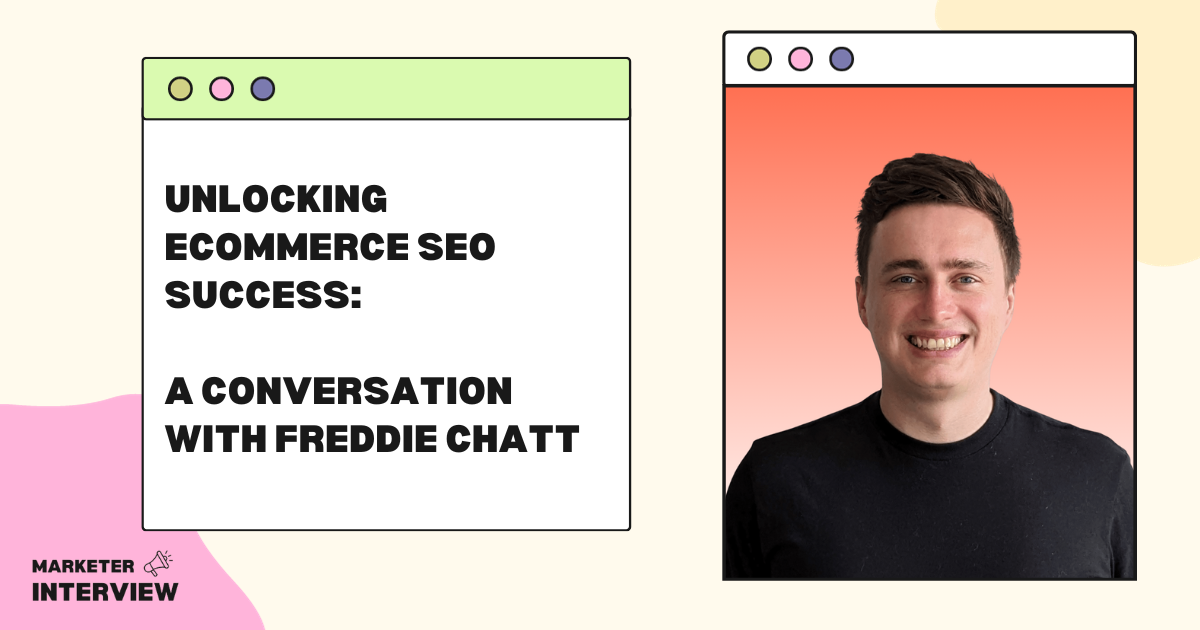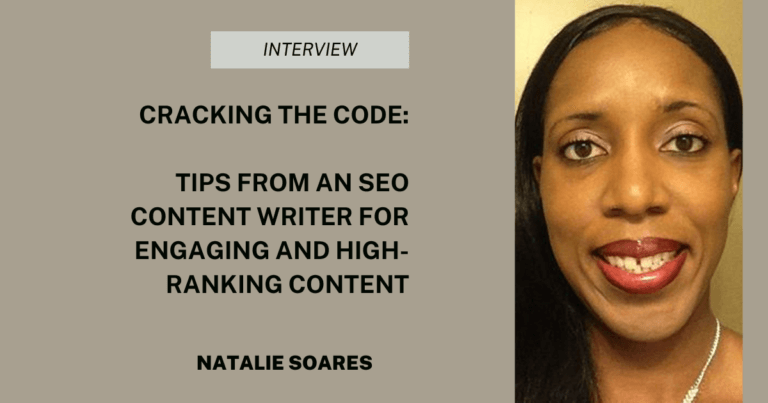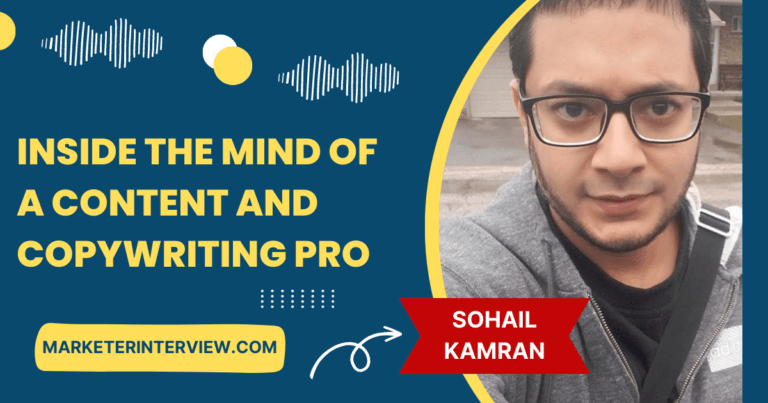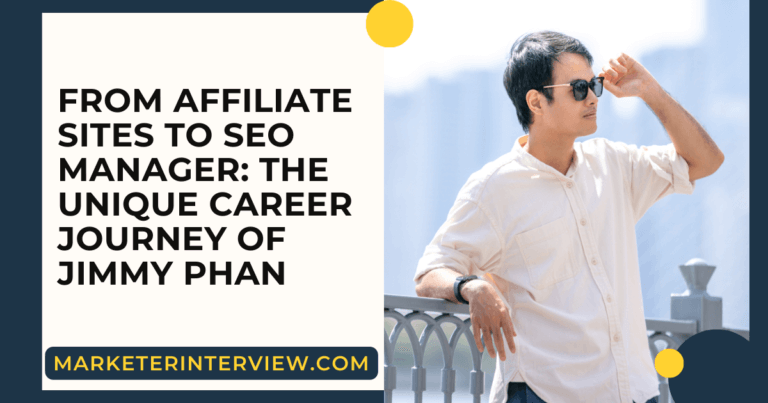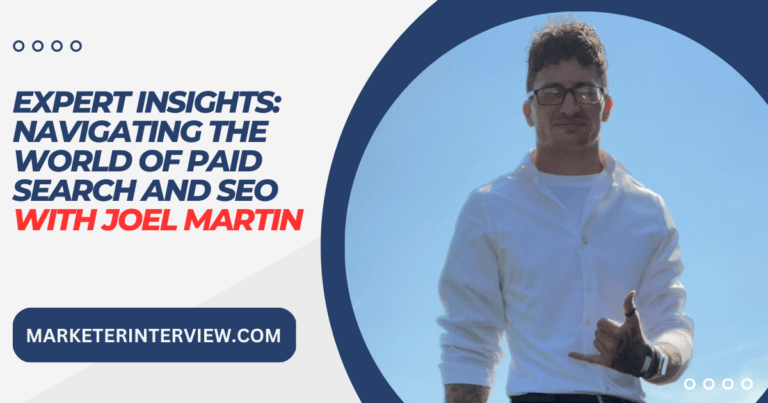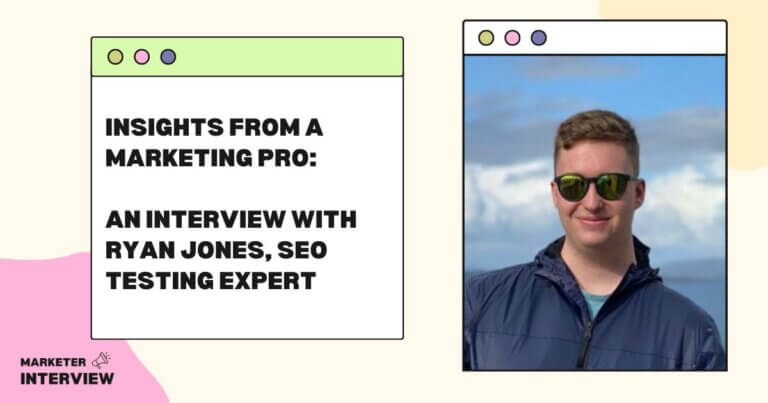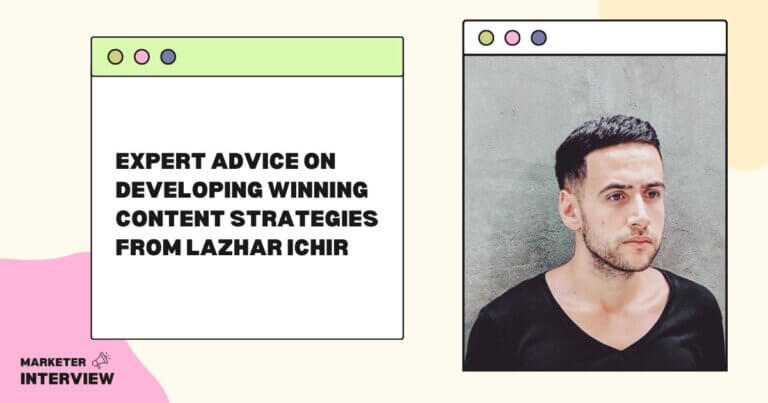Unlocking Ecommerce SEO Success: A Conversation with Freddie Chatt
Welcome to Marketer Interview, the go-to platform for in-depth conversations with outstanding marketers who have significantly impacted the industry.
Today, we have the pleasure of interviewing Freddie Chatt, an exceptional SEO Consultant specializing in e-commerce. With a remarkable portfolio of clients and a track record of achieving remarkable results, Freddie’s insights into the world of e-commerce SEO are not to be missed.
Now, let’s dive into the interview with Freddie Chatt, the SEO expert who’s been creating waves in the world of e-commerce.
Contents
- 1 Can you share your journey into the marketing world and how you found your niche in ecommerce SEO?
- 2 Tell us about your ecommerce store, Village Cricket Co. How has it influenced your approach as an SEO consultant?
- 3 What inspired you to become a freelance SEO consultant specializing exclusively in ecommerce?
- 4 E-commerce is a dynamic field. How do you stay updated with the latest trends and changes in SEO that affect online retailers?
- 5 Could you walk us through the core elements of your SEO strategy when working with ecommerce brands?
- 6 You mention reducing reliance on paid channels. Can you share some strategies you’ve used to achieve this for your clients?
- 7 Content strategy is crucial. What are some fundamental principles for creating content that can drive substantial traffic and conversions for ecommerce websites?
- 8 What are some specific tools and software you rely on for your work as an SEO consultant?
- 9 With a diverse portfolio of clients, can you highlight some key takeaways and lessons learned from working with brands like Amara, Manual, and Swisse?
Absolutely. I dropped out of university after 1 year. I had taken a gap year and worked full-time before going to university, and I much preferred working life, so it was the right move. I had been building some small websites online, a random blog, and a site about the nightlife scene of my town, and I loved the process of finding ways to drive traffic.
I was fortunate enough to be hired as a marketing assistant at a small ecommerce (Amara) brand near my home. I was thrown SEO as something they knew they should be doing but wasn’t sure how – they supported me by hiring an SEO consultant.
The variety that SEO involved and the problem-solving nature of it meant I fell in love with it almost immediately. Over the next 5 years, I grew the channel from almost nothing to an 8 figure channel for the brand, building a cohesive internal team to manage different elements of SEO.
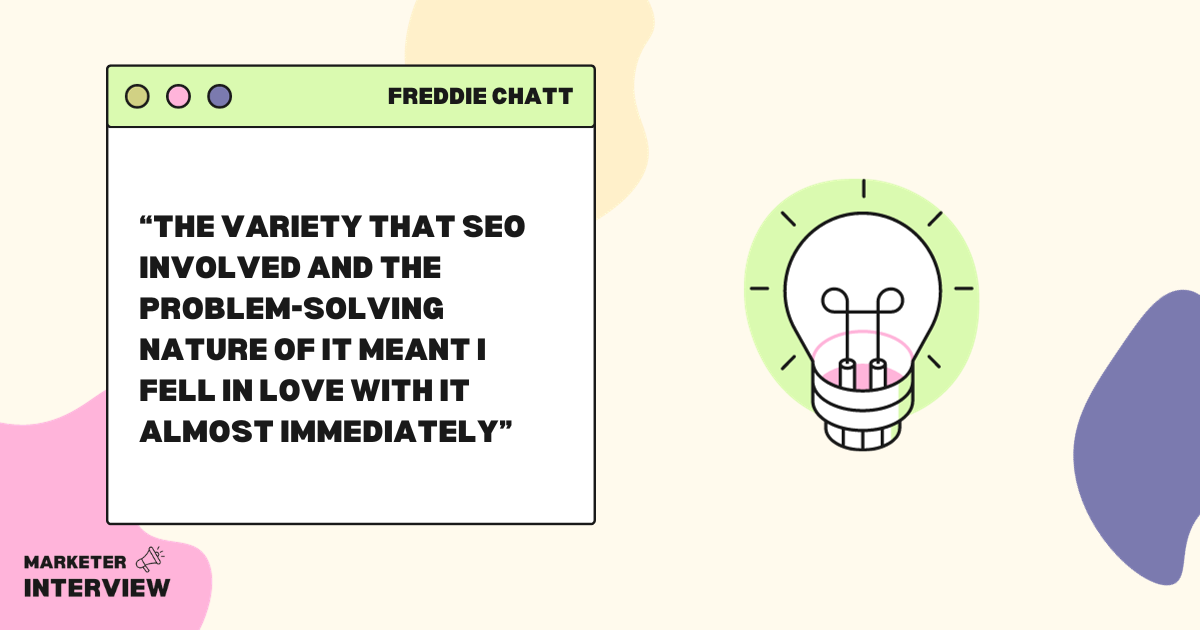
Tell us about your ecommerce store, Village Cricket Co. How has it influenced your approach as an SEO consultant?
Village Cricket Co. started as a side project and has quickly become more significant as it has grown. Initially, I wanted to start my ecommerce brand to use it as a case study so that I can share everything to help teach others what working in SEO – has also helped showcase my expertise to clients.
What I’ve also learned from running is all of the different elements that go into running an ecommerce business. Stock management has been a particular highlight and delicate balance I’ve learned. This activity has helped me understand more about clients’ businesses and how to talk SEO to them to get them to take action.
What inspired you to become a freelance SEO consultant specializing exclusively in ecommerce?
From working at Amara, I loved SEO and the ecommerce environment. Understanding customers, their behaviors, and everything about it. It always made sense that this would be my focus.
I was made redundant at the end of 2019, and having dabbled a bit in freelance on the side, I took this as an opportunity to go into it full-time to see if I could get the freedom of freelance and make my salary back from what I was earning. Fortunately, it only took me 8 months to earn my salary while working fewer hours, so it was worth it.
E-commerce is a dynamic field. How do you stay updated with the latest trends and changes in SEO that affect online retailers?
I used to subscribe to various relevant blogs, but more recently, I get all my updates from newsletters and social media (mainly Twitter and LinkedIn).
Newsletters are fantastic at curating topics and trends and making it easy to pick relevant ones. SEOFOMO by Aledya Solis is my #1 right now.
Social media needs more work to curate a network of people who share insights and trends, but it is a great way to keep up to date.
I also run my experiments on Village Cricket Co. and some clients who are open to trying new things, and in turn, I can then share those insights with others.
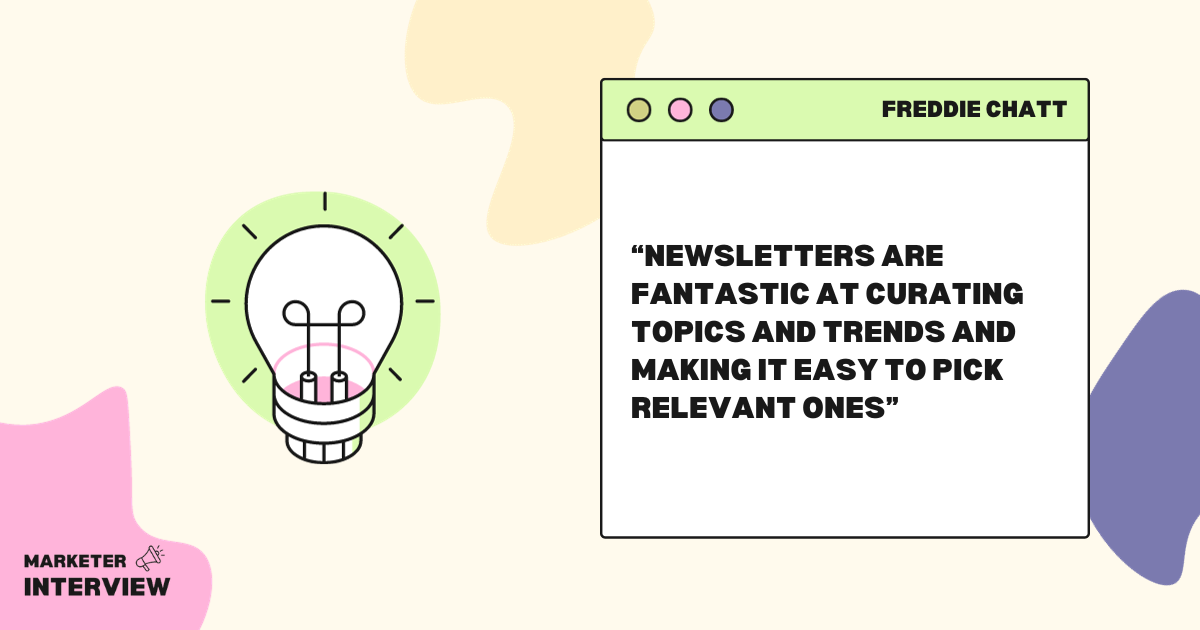
Could you walk us through the core elements of your SEO strategy when working with ecommerce brands?
Most SEO strategies have similar components, but the specific tactics and levels of investment in the different areas will vary depending on the position of the ecommerce brand.
The core pillars would be:
- Technical – ensuring the site is crawlable, indexable, and readable by Google and other search engines
- On page – Optimising core pages such as products and categories for high-intent traffic opportunities
- Content – Supporting content creation to build the topical authority of the site
- Link building – Building the authority of the site through targeted link-building campaigns
Some more established brands will have a fantastic backlink profile, so that additional link building might be less of a focus than new content creation.
There needs to be a mix of most elements for brand-new brands, but technical is probably lower on the list, and content and link-building will be the most significant focus areas.
One of the main goals for my clients is to improve their profitability (by reducing their reliance on paid channels).
A lot of my clients have invested heavily in Meta & Google Ads. For an SEO, if a client is using Google Ads, especially if they are spending a lot of dollars, it is a goldmine of keyword data that we would never be able to get from elsewhere.
I analyze this data to understand the exact keywords driving traffic and, more importantly, driving sales. These terms are the main focal point of the SEO strategy to rank high and drive traffic without paying for every click.
Content strategy is crucial. What are some fundamental principles for creating content that can drive substantial traffic and conversions for ecommerce websites?
Targeting bottom-of-the-funnel topics
Some brands are scared to mention their products in their content, which is crazy as how else will the reader know how you buy?
Conversely, some brands make content too much about themselves, making it much harder to rank and drive traffic to the content.
What are some specific tools and software you rely on for your work as an SEO consultant?
The top three tools I use (pretty much daily) are:
- Ahrefs is an awesome SEO tool that helps me find keywords, conduct competitor analysis, track new backlinks, and many others.
- Keyword Insights – A relative newbie in the SEO tool space, it seamlessly fitted into my workflow. It started as keyword clustering, allowing us to turn a list of keywords into a usable page-level list to understand what content or pages we need to create. It has recently evolved into a complete content marketing suite that enables you to discover opportunities, cluster keywords, and create and optimize a brief for writers.
- Screaming Frog – The first SEO tool I ever used, and I am still using it almost 12 years later. Fundamentally, it is a crawler that helps identify potential issues with your website.
With a diverse portfolio of clients, can you highlight some key takeaways and lessons learned from working with brands like Amara, Manual, and Swisse?
My two biggest takeaways:
1. Strategies remain the same. Tactics will differ:
Ecommerce offers similar technical approaches that vary by SKU count (managing 10 products is very different from managing 100,000 products, for example). Most brands use a handful of ecommerce platforms, so solutions are consistent. However, different industries (beauty vs. home, fashion vs. beverage) have different levels of competition and approaches to take with content and link building.
2. Communication is crucial:
Being able to speak the language of who you are talking to at a brand can solve most issues with implementing things. If you’re talking to a developer, being able to talk their language (not necessarily the need to know code) and understand what they can and can’t do can help get things implemented quicker. Talking to C-Suite level stakeholders, they don’t care about broken redirects or hreflang tags – they care about revenue and how quickly they can see it.
